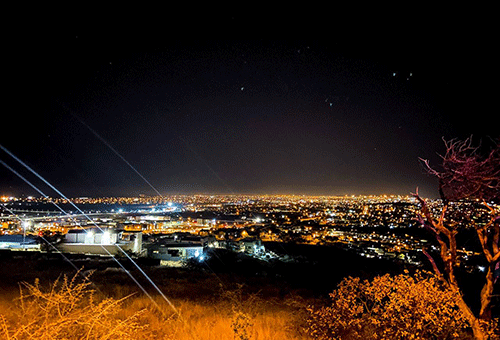Windhoek residents will have to tighten their belts even more as on top of this month’s fuel increase, they will also have to fork out more to keep the lights on at their homes and businesses.
This is because the City of Windhoek has increased electricity tariffs by 3.4% for the 2021/22 financial period.
According to the Electricity Control Board (ECB), the city applied for a 3.5% increment. However, the ECB as the national regulating authority approved the 3.4% tariff increase, considering that the last time an increment was approved for local authorities was in 2018. There was no increase for 2019 and 2020.
Responding to questions from New Era, the ECB noted that it is cognisant of the fact that some consumers are finding it difficult to afford not only electricity but other services too.
In this regard, ECB spokesperson Ferdinand Molale explained that to ease the burden on consumers, the ECB is looking into the implementation of a national electricity support tariff mechanism. This mechanism is intended to assist low-income households with affordable electricity.
He said the ECB takes into consideration key elements before approving tariff increase applications. These elements include the impact the tariff will have on consumers and suppliers; the financial sustainability of the electricity supply industry (whether the tariff will be able to cover the cost of electricity supply); the impact of the tariff on consumers and the economy at large (whether the customer will afford the tariff); any other externalities such as the current depressed economic climate and the impact of the Covid-19 pandemic on industries and consumers; and the cost of electricity supply, which if not covered will lead to an unsustainable industry. The cost of electricity generally includes power-generation costs, as well as transmission and distribution costs. Generation costs comprise primary energy (fuel), electricity imports, electricity supply from local independent power producers, the operation and maintenance of power plants, overheads and asset-related costs (depreciation and return).
Transmission and distribution costs include operating, maintenance and customer services.
“Distribution utilities normally submit their tariff applications after the bulk electricity tariff has been announced. The ECB then conducts a thorough review of these applications, and only allowable costs are considered. The bulk tariff became effective on 01 July 2021”, Molale stated.
He added that while considering all factors, the ECB also has to ensure that the industry collects enough revenue to cover the allowed cost of supply for the continuation of a stable electricity supply.


